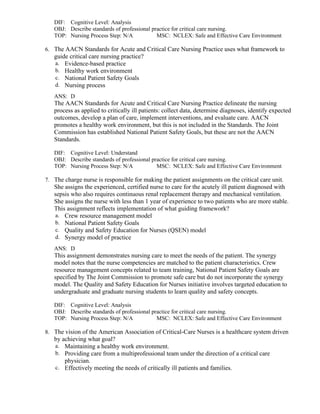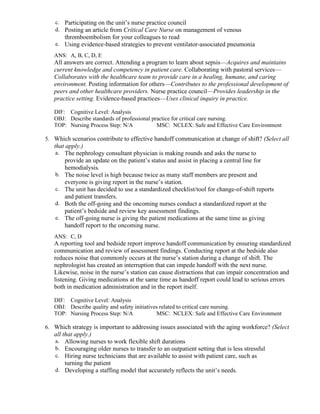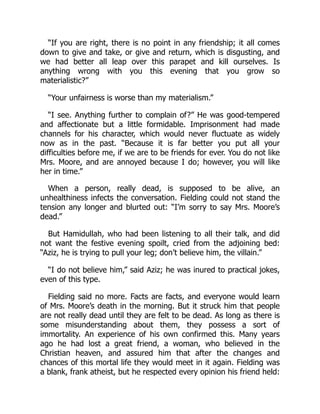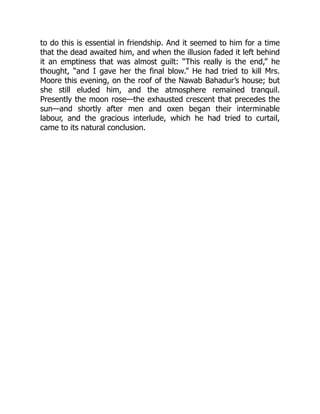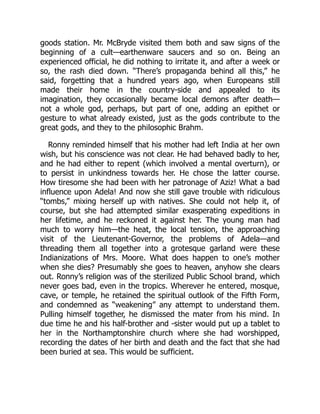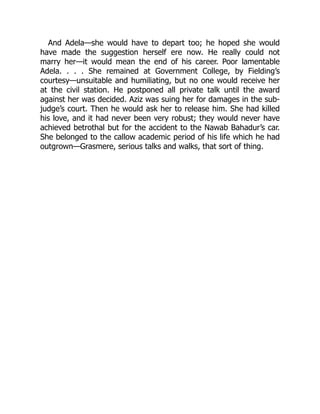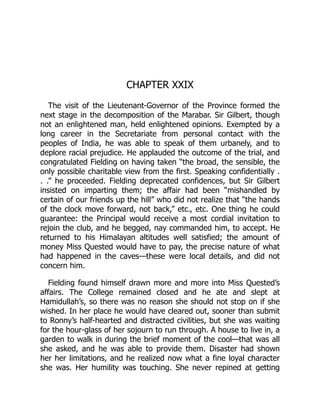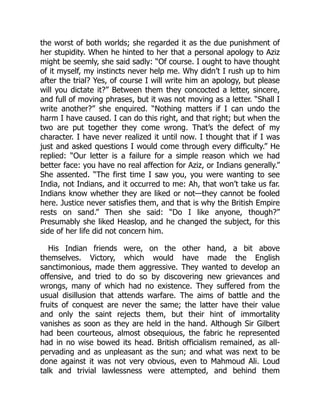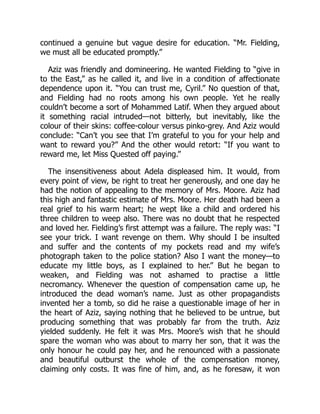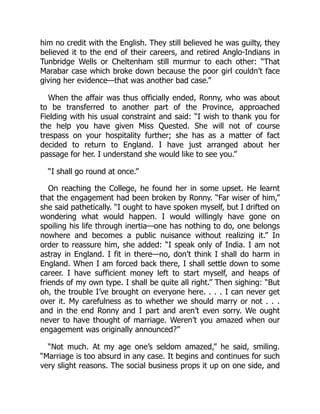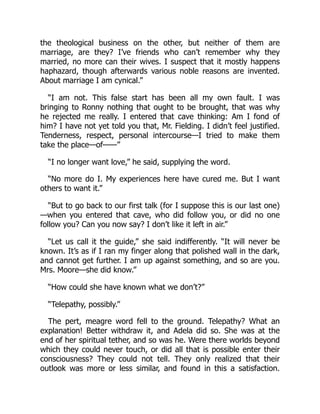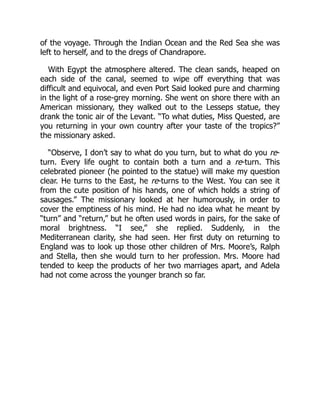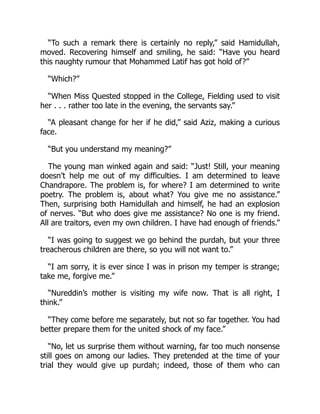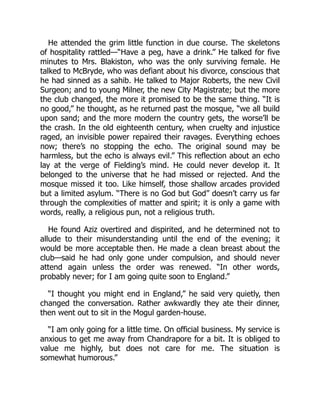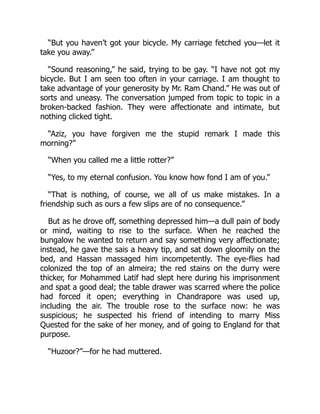Test Bank for Introduction to Critical Care Nursing, 8th Edition, Mary Lou Sole, Deborah Klein Marthe Moseley
- 1. Test Bank for Introduction to Critical Care Nursing, 8th Edition, Mary Lou Sole, Deborah Klein Marthe Moseley download https://testbankmall.com/product/test-bank-for-introduction-to- critical-care-nursing-8th-edition-mary-lou-sole-deborah-klein- marthe-moseley/ Visit testbankmall.com today to download the complete set of test bank or solution manual
- 2. Here are some recommended products for you. Click the link to download, or explore more at testbankmall.com Test Bank for Introduction to Critical Care Nursing, 6th Edition: Mary Lou Sole https://testbankmall.com/product/test-bank-for-introduction-to- critical-care-nursing-6th-edition-mary-lou-sole/ Test Bank for Introduction to Critical Care Nursing, 5th Edition: Mary Lou Sole https://testbankmall.com/product/test-bank-for-introduction-to- critical-care-nursing-5th-edition-mary-lou-sole/ Test Bank for Introduction to Critical Care Nursing 7th Edition by Sole https://testbankmall.com/product/test-bank-for-introduction-to- critical-care-nursing-7th-edition-by-sole/ Solution Manual for Financial & Managerial Accounting 15th by Warren https://testbankmall.com/product/solution-manual-for-financial- managerial-accounting-15th-by-warren/
- 3. Global Marketing Management 6th Edition Kotabe Test Bank https://testbankmall.com/product/global-marketing-management-6th- edition-kotabe-test-bank/ Test Bank for Essentials of Medical Laboratory Practice, 1st Edition, Constance L Lieseke, Elizabeth A Zeibig, https://testbankmall.com/product/test-bank-for-essentials-of-medical- laboratory-practice-1st-edition-constance-l-lieseke-elizabeth-a- zeibig/ Solution Manual for Developing Management Skills 9th Edition Whetten • https://testbankmall.com/product/solution-manual-for-developing- management-skills-9th-edition-whetten/ Test Bank for Human Physiology, 2nd Edition, Bryan H. Derrickson https://testbankmall.com/product/test-bank-for-human-physiology-2nd- edition-bryan-h-derrickson/ Systems Analysis and Design Rosenblatt 10th Edition Test Bank https://testbankmall.com/product/systems-analysis-and-design- rosenblatt-10th-edition-test-bank/
- 4. Test Bank for Business Intelligence and Analytics: Systems for Decision Support, 10/E 10th Edition : 0133050904 https://testbankmall.com/product/test-bank-for-business-intelligence- and-analytics-systems-for-decision-support-10-e-10th- edition-0133050904/
- 5. 3. What is the main purpose of certification for critical care nursing? a. To assure the consumer that critical nurses will not make a mistake. b. To help prepare the critical care nurse for graduate school. c. To assist in promoting magnet status for a facility. d. To validate a nurse’s knowledge of critical care nursing. ANS: D Certification assists in validating knowledge of the field, promotes excellence in the profession, and helps nurses to maintain their knowledge of critical care nursing. Certification helps to assure the consumer that the nurse has a minimum level of knowledge; however, it does not ensure that care will be mistake-free. Certification does not prepare one for graduate school; however, achieving certification demonstrates motivation for achievement and professionalism. Magnet facilities are rated on the number of certified nurses; however, that is not the purpose of certification. DIF: Cognitive Level: Analysis OBJ: Explain certification options for critical care nurses. TOP: Nursing Process Step: N/A MSC: NCLEX: Safe and Effective Care Environment 4. What is the focus of the synergy model of practice? a. Allowing unrestricted visiting for the patient 24 hours each day. b. Providing holistic and alternative therapies. c. Considering the needs of patients and their families, which drives nursing competency. d. Addressing the patients’ needs for energy and support. ANS: C The synergy model of practice states that the needs of patients and families influence and drive competencies of nurses. Nursing practice based on the synergy model would involve tailored visiting to meet the patient’s and family’s needs and application of alternative therapies if desired by the patient, but that is not the primary focus of the model. DIF: Cognitive Level: Application OBJ: Describe standards of professional practice for critical care nursing. TOP: Nursing Process Step: N/A MSC: NCLEX: Safe and Effective Care Environment 5. The family of your critically ill patient tells you that they have not spoken with the physician in over 24 hours and they have some questions that they want clarified. During morning rounds, you convey this concern to the attending intensivist and arrange for her to meet with the family at 4:00 PM in the conference room. Which competency of critical care nursing does this represent? a. Advocacy and moral agency in solving ethical issues b. Clinical judgment and clinical reasoning skills c. Collaboration with patients, families, and team members d. Facilitation of learning for patients, families, and team members ANS: C Although one might consider that all of these competencies are being addressed, communication and collaboration with the family and physician best exemplify the competency of collaboration.
- 6. DIF: Cognitive Level: Analysis OBJ: Describe standards of professional practice for critical care nursing. TOP: Nursing Process Step: N/A MSC: NCLEX: Safe and Effective Care Environment 6. The AACN Standards for Acute and Critical Care Nursing Practice uses what framework to guide critical care nursing practice? a. Evidence-based practice b. Healthy work environment c. National Patient Safety Goals d. Nursing process ANS: D The AACN Standards for Acute and Critical Care Nursing Practice delineate the nursing process as applied to critically ill patients: collect data, determine diagnoses, identify expected outcomes, develop a plan of care, implement interventions, and evaluate care. AACN promotes a healthy work environment, but this is not included in the Standards. The Joint Commission has established National Patient Safety Goals, but these are not the AACN Standards. DIF: Cognitive Level: Understand OBJ: Describe standards of professional practice for critical care nursing. TOP: Nursing Process Step: N/A MSC: NCLEX: Safe and Effective Care Environment 7. The charge nurse is responsible for making the patient assignments on the critical care unit. She assigns the experienced, certified nurse to care for the acutely ill patient diagnosed with sepsis who also requires continuous renal replacement therapy and mechanical ventilation. She assigns the nurse with less than 1 year of experience to two patients who are more stable. This assignment reflects implementation of what guiding framework? a. Crew resource management model b. National Patient Safety Goals c. Quality and Safety Education for Nurses (QSEN) model d. Synergy model of practice ANS: D This assignment demonstrates nursing care to meet the needs of the patient. The synergy model notes that the nurse competencies are matched to the patient characteristics. Crew resource management concepts related to team training, National Patient Safety Goals are specified by The Joint Commission to promote safe care but do not incorporate the synergy model. The Quality and Safety Education for Nurses initiative involves targeted education to undergraduate and graduate nursing students to learn quality and safety concepts. DIF: Cognitive Level: Analysis OBJ: Describe standards of professional practice for critical care nursing. TOP: Nursing Process Step: N/A MSC: NCLEX: Safe and Effective Care Environment 8. The vision of the American Association of Critical-Care Nurses is a healthcare system driven by achieving what goal? a. Maintaining a healthy work environment. b. Providing care from a multiprofessional team under the direction of a critical care physician. c. Effectively meeting the needs of critically ill patients and families.
- 7. d. Creating respectful, healing, and humane environments. ANS: C The AACN vision is a healthcare system driven by the needs of critically ill patients and families where critical care nurses make their optimum contributions. AACN promotes initiatives to support a healthy work environment as well as respectful and healing environments, but that is not the organization’s vision. The SCCM promotes care from a multiprofessional team under the direction of a critical care physician. DIF: Cognitive Level: Knowledge OBJ: Discuss the purposes and functions of the professional organizations that support critical care practice. TOP: Nursing Process Step: N/A MSC: NCLEX: Safe and Effective Care Environment 9. What is the most important outcome of effective communication? a. Demonstrating caring practices to family members. b. Ensuring that patient teaching is provided c. Meeting the diversity needs of patients. d. Reducing patient errors. ANS: D Many errors are directly attributed to faulty communication. Effective communication has been identified as an essential strategy to reduce patient errors and resolve issues related to patient care delivery. Communication may demonstrate caring practices, be used for patient/family teaching, and address diversity needs; however, the main outcome of effective communication is patient safety. DIF: Cognitive Level: Analysis OBJ: Describe quality and safety initiatives related to critical care nursing. TOP: Nursing Process Step: N/A MSC: NCLEX: Safe and Effective Care Environment 10. The nurse is caring for a critically ill patient whose urine output has been low for 2 consecutive hours. After a thorough patient assessment, you call the primary care provider with the following report. Dr. Smith, I’m calling about Mrs. P., your 65-year-old patient in CCU 10. Her urine output for the past 2 hours totaled only 40 mL. She arrived from surgery to repair an aortic aneurysm 4 hours ago and remains on mechanical ventilation. In the past 2 hours, her heart rate has increased from 80 to 100 beats per minute and her blood pressure has decreased from 128/82 to 100/70 mm Hg. She is being given an infusion of normal saline at 100 mL per hour. Her right atrial pressure through the subclavian central line is low at 3 mm Hg. Her urine is concentrated. Her BUN and creatinine levels have been stable and in normal range. Her abdominal dressing is dry with no indication of bleeding. My assessment suggests that Mrs. P. is hypovolemic and I would like you to consider increasing her fluids or giving her a fluid challenge. Using the SBAR model for communication, the information the nurse gives about the patient’s history and vital signs is appropriate for what part of the model? a. Situation b. Background c. Assessment d. Recommendation ANS: B
- 8. The history and vital signs are part of the background. Information regarding the low urine output is the situation. Information regarding possible hypovolemia is part of the nurse’s assessment, and the suggestion for fluids is the recommendation. DIF: Cognitive Level: Understand OBJ: Describe quality and safety initiatives related to critical care nursing. TOP: Nursing Process Step: Assessment MSC: NCLEX: Safe and Effective Care Environment 11. The family members of a critically ill, 90-year-old patient bring in a copy of the patient’s living will to the hospital, which identifies the patient’s wishes regarding health care. The nurse discusses the contents of the living will with the patient’s physician. This is an example of implementation of which of the AACN Standards of Professional Performance? a. Acquires and maintains current knowledge of practice b. Acts ethically on the behalf of the patient and family c. Considers factors related to safe patient care d. Uses clinical inquiry and integrates research findings in practice ANS: B Discussing end-of-life issues is an example of a nurse acting ethically on behalf of the patient and family. The example does not relate to acquiring knowledge, promoting patient safety, or using research in practice. DIF: Cognitive Level: Analysis OBJ: Describe standards of care and performance for critical care nursing. TOP: Nursing Process Step: Implementation MSC: NCLEX: Safe and Effective Care Environment 12. Which of the following assists the critical care nurse in ensuring that care is appropriate and based on research? a. Clinical practice guidelines b. Computerized physician order entry c. Consulting with advanced practice nurses d. Implementing Joint Commission National Patient Safety Goals ANS: A Clinical practice guidelines are being implemented to ensure that care is appropriate and based on research. Some physician order entry pathways, but not all, are based on research recommendations. Some advanced practice nurses, but not all, are well versed in evidence- based practices. The National Patient Safety Goals are recommendations to reduce errors using evidence-based practices. DIF: Cognitive Level: Analysis OBJ: Describe standards of professional practice for critical care nursing. TOP: Nursing Process Step: N/A MSC: NCLEX: Safe and Effective Care Environment 13. Comparing the patient’s current (home) medications with those ordered during hospitalization and communicating a complete list of medications to the next care provider when the patient is transferred within an organization or to another setting are strategies toward best achieving what patient related goal? a. Improving accuracy of patient identification. b. Preventing errors related to look-alike and sound-alike medications.
- 9. c. Reconciling medications across the continuum of care. d. Reducing harms associated with administration of anticoagulants. ANS: C These are steps recommended in the National Patient Safety Goals to reconcile medications across the continuum of care. Improving accuracy of patient identification is another National Patient Safety Goal. Preventing errors related to look-alike and sound-alike medications is done to improve medication safety, not medication reconciliation. Reducing harms associated with administration of anticoagulants is another National Patient Safety Goal. DIF: Cognitive Level: Comprehension OBJ: Describe quality and safety initiatives related to critical care nursing. TOP: Nursing Process Step: N/A MSC: NCLEX: Safe and Effective Care Environment 14. As part of nursing management of a critically ill patient, orders are written to keep the head of the bed elevated at 30 degrees, awaken the patient from sedation each morning to assess readiness to wean from mechanical ventilation, and implement oral care protocols every 4 hours. These interventions are done as a group to reduce the risk of ventilator-associated pneumonia. This group of evidence-based interventions is often referred to using what term? a. Bundle of care. b. Clinical practice guideline. c. Patient safety goal. d. Quality improvement initiative. ANS: A A group of evidence-based interventions done as a whole to improve outcomes is termed a bundle of care. This is an example of the ventilator bundle. Oftentimes these bundles are derived from clinical practice guidelines and are monitored for compliance as part of quality improvement initiatives. At some point, these may become part of patient safety goals. DIF: Cognitive Level: Analysis OBJ: Describe quality and safety initiatives related to critical care nursing. TOP: Nursing Process Step: Implementation MSC: NCLEX: Safe and Effective Care Environment 15. A nurse who works in an intermediate care unit has experienced high nursing turnover. The nurse manager is often considered to be an autocratic leader by staff members and that leadership style is contributing to turnover. The nurse asks to be involved in developing new guidelines to prevent pressure ulcers in the patient population. The nurse manager suggests that the nurse has not yet had enough experience to be on the prevention task force. This situation and setting is an example of what form of ineffective leadership? a. Creating a barrier to inter-staff communication. b. Supporting a work environment that is unhealthy. c. Displaying ineffective decision making. d. Demonstrating nursing practice that is not evidence-based. ANS: B
- 10. These are examples of an unhealthy work environment. A healthy work environment values communication, collaboration, and effective decision making. It also has authentic leadership. It is not an example of handoff communication, which is communication that occurs to transition patient care from one staff member to another. Neither does it relate to ineffective decision making. As a nurse, you can still implement evidence-based practice, but your influence in the unit is limited by the unhealthy work environment. DIF: Cognitive Level: Analysis OBJ: Describe standards of professional practice for critical care nursing. TOP: Nursing Process Step: N/A MSC: NCLEX: Safe and Effective Care Environment 16. Which of the following statements describes the core concept of the synergy model of practice? a. All nurses must be certified in order to have the synergy model implemented. b. Family members must be included in daily interdisciplinary rounds. c. Nurses and physicians must work collaboratively and synergistically to influence care. d. Unique needs of patients and their families influence nursing competencies. ANS: D The synergy model of practice is care based on the unique needs and characteristics of the patient and family members. Although critical care certification is based on the synergy model, the model does not specifically address certification. Inclusion of family members into the daily rounds is an example of implementation of the synergy model. With the focus on patients and family members with nurse interaction, the synergy model does not address physician collaboration. DIF: Cognitive Level: Application OBJ: Describe standards of professional practice for critical care nursing. TOP: Nursing Process Step: Implementation MSC: NCLEX: Psychosocial Integrity 17. A nurse who plans care based on the patient’s gender, ethnicity, spirituality, and lifestyle is said to demonstrate what focus? a. Becoming a moral advocate. b. Facilitating all forms of learning. c. Responding to diversity. d. Using effective clinical judgment. ANS: C Response to diversity considers all of these aspects when planning and implementing care. A moral agent helps resolve ethical and clinical concerns. Consideration of these factors does not necessarily facilitate learning. Clinical judgment uses other factors as well. DIF: Cognitive Level: Comprehension OBJ: Describe standards of professional practice for critical care nursing. TOP: Nursing Process Step: Planning MSC: NCLEX: Psychosocial Integrity MULTIPLE RESPONSE 1. Which of the following is a National Patient Safety Goal? (Select all that apply.)
- 11. a. Accurately identify patients. b. Eliminate use of patient restraints. c. Reconcile medications across the continuum of care. d. Reduce risks of healthcare-acquired infection. ANS: A, C, D All except for eliminating use of restraints are current National Patient Safety Goals. Hospitals have policies regarding use of restraints and are attempting to reduce the use of restraints; however, this is not a National Patient Safety Goal. DIF: Cognitive Level: Knowledge OBJ: Describe quality and safety initiatives related to critical care nursing. TOP: Nursing Process Step: N/A MSC: NCLEX: Safe and Effective Care Environment 2. Which of the following is (are) official journal(s) of the American Association of Critical- Care Nurses? (Select all that apply.) a. American Journal of Critical Care b. Critical Care Clinics of North America c. Critical Care Nurse d. Critical Care Nursing Quarterly ANS: A, C American Journal of Critical Care and Critical Care Nurse are two official AACN publications. Critical Care Clinics and Critical Care Nursing Quarterly are not AACN publications. DIF: Cognitive Level: Knowledge OBJ: Discuss the purposes and functions of the professional organizations that support critical care practice. TOP: Nursing Process Step: N/A MSC: NCLEX: Safe and Effective Care Environment 3. What were identified as the first critical care units? (Select all that apply.) a. Burn units. b. Coronary care units c. Recovery rooms. d. Neonatal intensive care units. e. High-risk OB units. ANS: B, C Recovery rooms and coronary care units were the first units designated to care for critically ill patients. Burn, high risk OB and neonatal intensive care units were established as specialty units evolved. DIF: Cognitive Level: Knowledge OBJ: Define critical care nursing. TOP: Nursing Process Step: N/A MSC: NCLEX: Safe and Effective Care Environment 4. Which of the following nursing activities demonstrates implementation of the AACN Standards of Professional Performance? (Select all that apply.) a. Attending a meeting of the local chapter of the American Association of Critical- Care Nurses in which a continuing education program on sepsis is being taught b. Collaborating with a pastoral services colleague to assist in meeting spiritual needs of the patient and family
- 12. c. Participating on the unit’s nurse practice council d. Posting an article from Critical Care Nurse on management of venous thromboembolism for your colleagues to read e. Using evidence-based strategies to prevent ventilator-associated pneumonia ANS: A, B, C, D, E All answers are correct. Attending a program to learn about sepsis—Acquires and maintains current knowledge and competency in patient care. Collaborating with pastoral services— Collaborates with the healthcare team to provide care in a healing, humane, and caring environment. Posting information for others—Contributes to the professional development of peers and other healthcare providers. Nurse practice council—Provides leadership in the practice setting. Evidence-based practices—Uses clinical inquiry in practice. DIF: Cognitive Level: Analysis OBJ: Describe standards of professional practice for critical care nursing. TOP: Nursing Process Step: N/A MSC: NCLEX: Safe and Effective Care Environment 5. Which scenarios contribute to effective handoff communication at change of shift? (Select all that apply.) a. The nephrology consultant physician is making rounds and asks the nurse to provide an update on the patient’s status and assist in placing a central line for hemodialysis. b. The noise level is high because twice as many staff members are present and everyone is giving report in the nurse’s station. c. The unit has decided to use a standardized checklist/tool for change-of-shift reports and patient transfers. d. Both the off-going and the oncoming nurses conduct a standardized report at the patient’s bedside and review key assessment findings. e. The off-going nurse is giving the patient medications at the same time as giving handoff report to the oncoming nurse. ANS: C, D A reporting tool and bedside report improve handoff communication by ensuring standardized communication and review of assessment findings. Conducting report at the bedside also reduces noise that commonly occurs at the nurse’s station during a change of shift. The nephrologist has created an interruption that can impede handoff with the next nurse. Likewise, noise in the nurse’s station can cause distractions that can impair concentration and listening. Giving medications at the same time as handoff report could lead to serious errors both in medication administration and in the report itself. DIF: Cognitive Level: Analysis OBJ: Describe quality and safety initiatives related to critical care nursing. TOP: Nursing Process Step: N/A MSC: NCLEX: Safe and Effective Care Environment 6. Which strategy is important to addressing issues associated with the aging workforce? (Select all that apply.) a. Allowing nurses to work flexible shift durations b. Encouraging older nurses to transfer to an outpatient setting that is less stressful c. Hiring nurse technicians that are available to assist with patient care, such as turning the patient d. Developing a staffing model that accurately reflects the unit’s needs.
- 13. e. Remodeling patient care rooms to include devices to assist in patient lifting ANS: A, C, D Modifying the work environment to reduce physical demands is one strategy to assist the aging workforce. Examples include overhead lifts to prevent back injuries. Twelve-hour shifts can be quite demanding; therefore, allowing nurses flexibility in choosing shifts of shorter duration is a good option as well. Adequate staffing, including non-licensed assistive personnel, to help with nursing and non-nursing tasks is helpful. Encouraging experienced, knowledgeable critical care nurses to leave the critical care unit is not wise as the unit loses the expertise of this group. DIF: Cognitive Level: Analysis OBJ: Identify current trends and issues in critical care nursing. TOP: Nursing Process Step: N/A MSC: NCLEX: Safe and Effective Care Environment 7. Which of the following strategies will assist in creating a healthy work environment for the critical care nurse? (Select all that apply.) a. Celebrating improved outcomes from a nurse-driven protocol with a pizza party b. Implementing a medication safety program designed by pharmacists c. Modifying the staffing pattern to ensure a 1:1 nurse/patient ratio d. Offering quarterly joint nurse-physician workshops to discuss unit issues e. Using the Situation-Background-Assessment-Recommendation (SBAR) technique for handoff communication ANS: A, D, E Meaningful recognition, true collaboration, and skilled communication are elements of a healthy work environment. Implementing a medication safety program enhances patient safety, and if done without nursing input, could have negative outcomes. Staffing should be adjusted to meet patient needs and nurse competencies, not have predetermined ratios that are unrealistic and possibly not needed. DIF: Cognitive Level: Analysis OBJ: Describe standards of professional practice for critical care nursing. TOP: Nursing Process Step: Implementation MSC: NCLEX: Safe and Effective Care Environment
- 14. Other documents randomly have different content
- 15. “If you are right, there is no point in any friendship; it all comes down to give and take, or give and return, which is disgusting, and we had better all leap over this parapet and kill ourselves. Is anything wrong with you this evening that you grow so materialistic?” “Your unfairness is worse than my materialism.” “I see. Anything further to complain of?” He was good-tempered and affectionate but a little formidable. Imprisonment had made channels for his character, which would never fluctuate as widely now as in the past. “Because it is far better you put all your difficulties before me, if we are to be friends for ever. You do not like Mrs. Moore, and are annoyed because I do; however, you will like her in time.” When a person, really dead, is supposed to be alive, an unhealthiness infects the conversation. Fielding could not stand the tension any longer and blurted out: “I’m sorry to say Mrs. Moore’s dead.” But Hamidullah, who had been listening to all their talk, and did not want the festive evening spoilt, cried from the adjoining bed: “Aziz, he is trying to pull your leg; don’t believe him, the villain.” “I do not believe him,” said Aziz; he was inured to practical jokes, even of this type. Fielding said no more. Facts are facts, and everyone would learn of Mrs. Moore’s death in the morning. But it struck him that people are not really dead until they are felt to be dead. As long as there is some misunderstanding about them, they possess a sort of immortality. An experience of his own confirmed this. Many years ago he had lost a great friend, a woman, who believed in the Christian heaven, and assured him that after the changes and chances of this mortal life they would meet in it again. Fielding was a blank, frank atheist, but he respected every opinion his friend held:
- 16. to do this is essential in friendship. And it seemed to him for a time that the dead awaited him, and when the illusion faded it left behind it an emptiness that was almost guilt: “This really is the end,” he thought, “and I gave her the final blow.” He had tried to kill Mrs. Moore this evening, on the roof of the Nawab Bahadur’s house; but she still eluded him, and the atmosphere remained tranquil. Presently the moon rose—the exhausted crescent that precedes the sun—and shortly after men and oxen began their interminable labour, and the gracious interlude, which he had tried to curtail, came to its natural conclusion.
- 17. CHAPTER XXVIII Dead she was—committed to the deep while still on the southward track, for the boats from Bombay cannot point towards Europe until Arabia has been rounded; she was further in the tropics than ever achieved while on shore, when the sun touched her for the last time and her body was lowered into yet another India—the Indian Ocean. She left behind her sore discomfort, for a death gives a ship a bad name. Who was this Mrs. Moore? When Aden was reached, Lady Mellanby cabled, wrote, did all that was kind, but the wife of a Lieutenant-Governor does not bargain for such an experience; and she repeated: “I had only seen the poor creature for a few hours when she was taken ill; really this has been needlessly distressing, it spoils one’s home-coming.” A ghost followed the ship up the Red Sea, but failed to enter the Mediterranean. Somewhere about Suez there is always a social change: the arrangements of Asia weaken and those of Europe begin to be felt, and during the transition Mrs. Moore was shaken off. At Port Said the grey blustery north began. The weather was so cold and bracing that the passengers felt it must have broken in the land they had left, but it became hotter steadily there in accordance with its usual law. The death took subtler and more lasting shapes in Chandrapore. A legend sprang up that an Englishman had killed his mother for trying to save an Indian’s life—and there was just enough truth in this to cause annoyance to the authorities. Sometimes it was a cow that had been killed—or a crocodile with the tusks of a boar had crawled out of the Ganges. Nonsense of this type is more difficult to combat than a solid lie. It hides in rubbish heaps and moves when no one is looking. At one period two distinct tombs containing Esmiss Esmoor’s remains were reported: one by the tannery, the other up near the
- 18. goods station. Mr. McBryde visited them both and saw signs of the beginning of a cult—earthenware saucers and so on. Being an experienced official, he did nothing to irritate it, and after a week or so, the rash died down. “There’s propaganda behind all this,” he said, forgetting that a hundred years ago, when Europeans still made their home in the country-side and appealed to its imagination, they occasionally became local demons after death— not a whole god, perhaps, but part of one, adding an epithet or gesture to what already existed, just as the gods contribute to the great gods, and they to the philosophic Brahm. Ronny reminded himself that his mother had left India at her own wish, but his conscience was not clear. He had behaved badly to her, and he had either to repent (which involved a mental overturn), or to persist in unkindness towards her. He chose the latter course. How tiresome she had been with her patronage of Aziz! What a bad influence upon Adela! And now she still gave trouble with ridiculous “tombs,” mixing herself up with natives. She could not help it, of course, but she had attempted similar exasperating expeditions in her lifetime, and he reckoned it against her. The young man had much to worry him—the heat, the local tension, the approaching visit of the Lieutenant-Governor, the problems of Adela—and threading them all together into a grotesque garland were these Indianizations of Mrs. Moore. What does happen to one’s mother when she dies? Presumably she goes to heaven, anyhow she clears out. Ronny’s religion was of the sterilized Public School brand, which never goes bad, even in the tropics. Wherever he entered, mosque, cave, or temple, he retained the spiritual outlook of the Fifth Form, and condemned as “weakening” any attempt to understand them. Pulling himself together, he dismissed the mater from his mind. In due time he and his half-brother and -sister would put up a tablet to her in the Northamptonshire church where she had worshipped, recording the dates of her birth and death and the fact that she had been buried at sea. This would be sufficient.
- 19. And Adela—she would have to depart too; he hoped she would have made the suggestion herself ere now. He really could not marry her—it would mean the end of his career. Poor lamentable Adela. . . . She remained at Government College, by Fielding’s courtesy—unsuitable and humiliating, but no one would receive her at the civil station. He postponed all private talk until the award against her was decided. Aziz was suing her for damages in the sub- judge’s court. Then he would ask her to release him. She had killed his love, and it had never been very robust; they would never have achieved betrothal but for the accident to the Nawab Bahadur’s car. She belonged to the callow academic period of his life which he had outgrown—Grasmere, serious talks and walks, that sort of thing.
- 20. CHAPTER XXIX The visit of the Lieutenant-Governor of the Province formed the next stage in the decomposition of the Marabar. Sir Gilbert, though not an enlightened man, held enlightened opinions. Exempted by a long career in the Secretariate from personal contact with the peoples of India, he was able to speak of them urbanely, and to deplore racial prejudice. He applauded the outcome of the trial, and congratulated Fielding on having taken “the broad, the sensible, the only possible charitable view from the first. Speaking confidentially . . .” he proceeded. Fielding deprecated confidences, but Sir Gilbert insisted on imparting them; the affair had been “mishandled by certain of our friends up the hill” who did not realize that “the hands of the clock move forward, not back,” etc., etc. One thing he could guarantee: the Principal would receive a most cordial invitation to rejoin the club, and he begged, nay commanded him, to accept. He returned to his Himalayan altitudes well satisfied; the amount of money Miss Quested would have to pay, the precise nature of what had happened in the caves—these were local details, and did not concern him. Fielding found himself drawn more and more into Miss Quested’s affairs. The College remained closed and he ate and slept at Hamidullah’s, so there was no reason she should not stop on if she wished. In her place he would have cleared out, sooner than submit to Ronny’s half-hearted and distracted civilities, but she was waiting for the hour-glass of her sojourn to run through. A house to live in, a garden to walk in during the brief moment of the cool—that was all she asked, and he was able to provide them. Disaster had shown her her limitations, and he realized now what a fine loyal character she was. Her humility was touching. She never repined at getting
- 21. the worst of both worlds; she regarded it as the due punishment of her stupidity. When he hinted to her that a personal apology to Aziz might be seemly, she said sadly: “Of course. I ought to have thought of it myself, my instincts never help me. Why didn’t I rush up to him after the trial? Yes, of course I will write him an apology, but please will you dictate it?” Between them they concocted a letter, sincere, and full of moving phrases, but it was not moving as a letter. “Shall I write another?” she enquired. “Nothing matters if I can undo the harm I have caused. I can do this right, and that right; but when the two are put together they come wrong. That’s the defect of my character. I have never realized it until now. I thought that if I was just and asked questions I would come through every difficulty.” He replied: “Our letter is a failure for a simple reason which we had better face: you have no real affection for Aziz, or Indians generally.” She assented. “The first time I saw you, you were wanting to see India, not Indians, and it occurred to me: Ah, that won’t take us far. Indians know whether they are liked or not—they cannot be fooled here. Justice never satisfies them, and that is why the British Empire rests on sand.” Then she said: “Do I like anyone, though?” Presumably she liked Heaslop, and he changed the subject, for this side of her life did not concern him. His Indian friends were, on the other hand, a bit above themselves. Victory, which would have made the English sanctimonious, made them aggressive. They wanted to develop an offensive, and tried to do so by discovering new grievances and wrongs, many of which had no existence. They suffered from the usual disillusion that attends warfare. The aims of battle and the fruits of conquest are never the same; the latter have their value and only the saint rejects them, but their hint of immortality vanishes as soon as they are held in the hand. Although Sir Gilbert had been courteous, almost obsequious, the fabric he represented had in no wise bowed its head. British officialism remained, as all- pervading and as unpleasant as the sun; and what was next to be done against it was not very obvious, even to Mahmoud Ali. Loud talk and trivial lawlessness were attempted, and behind them
- 22. continued a genuine but vague desire for education. “Mr. Fielding, we must all be educated promptly.” Aziz was friendly and domineering. He wanted Fielding to “give in to the East,” as he called it, and live in a condition of affectionate dependence upon it. “You can trust me, Cyril.” No question of that, and Fielding had no roots among his own people. Yet he really couldn’t become a sort of Mohammed Latif. When they argued about it something racial intruded—not bitterly, but inevitably, like the colour of their skins: coffee-colour versus pinko-grey. And Aziz would conclude: “Can’t you see that I’m grateful to you for your help and want to reward you?” And the other would retort: “If you want to reward me, let Miss Quested off paying.” The insensitiveness about Adela displeased him. It would, from every point of view, be right to treat her generously, and one day he had the notion of appealing to the memory of Mrs. Moore. Aziz had this high and fantastic estimate of Mrs. Moore. Her death had been a real grief to his warm heart; he wept like a child and ordered his three children to weep also. There was no doubt that he respected and loved her. Fielding’s first attempt was a failure. The reply was: “I see your trick. I want revenge on them. Why should I be insulted and suffer and the contents of my pockets read and my wife’s photograph taken to the police station? Also I want the money—to educate my little boys, as I explained to her.” But he began to weaken, and Fielding was not ashamed to practise a little necromancy. Whenever the question of compensation came up, he introduced the dead woman’s name. Just as other propagandists invented her a tomb, so did he raise a questionable image of her in the heart of Aziz, saying nothing that he believed to be untrue, but producing something that was probably far from the truth. Aziz yielded suddenly. He felt it was Mrs. Moore’s wish that he should spare the woman who was about to marry her son, that it was the only honour he could pay her, and he renounced with a passionate and beautiful outburst the whole of the compensation money, claiming only costs. It was fine of him, and, as he foresaw, it won
- 23. him no credit with the English. They still believed he was guilty, they believed it to the end of their careers, and retired Anglo-Indians in Tunbridge Wells or Cheltenham still murmur to each other: “That Marabar case which broke down because the poor girl couldn’t face giving her evidence—that was another bad case.” When the affair was thus officially ended, Ronny, who was about to be transferred to another part of the Province, approached Fielding with his usual constraint and said: “I wish to thank you for the help you have given Miss Quested. She will not of course trespass on your hospitality further; she has as a matter of fact decided to return to England. I have just arranged about her passage for her. I understand she would like to see you.” “I shall go round at once.” On reaching the College, he found her in some upset. He learnt that the engagement had been broken by Ronny. “Far wiser of him,” she said pathetically. “I ought to have spoken myself, but I drifted on wondering what would happen. I would willingly have gone on spoiling his life through inertia—one has nothing to do, one belongs nowhere and becomes a public nuisance without realizing it.” In order to reassure him, she added: “I speak only of India. I am not astray in England. I fit in there—no, don’t think I shall do harm in England. When I am forced back there, I shall settle down to some career. I have sufficient money left to start myself, and heaps of friends of my own type. I shall be quite all right.” Then sighing: “But oh, the trouble I’ve brought on everyone here. . . . I can never get over it. My carefulness as to whether we should marry or not . . . and in the end Ronny and I part and aren’t even sorry. We ought never to have thought of marriage. Weren’t you amazed when our engagement was originally announced?” “Not much. At my age one’s seldom amazed,” he said, smiling. “Marriage is too absurd in any case. It begins and continues for such very slight reasons. The social business props it up on one side, and
- 24. the theological business on the other, but neither of them are marriage, are they? I’ve friends who can’t remember why they married, no more can their wives. I suspect that it mostly happens haphazard, though afterwards various noble reasons are invented. About marriage I am cynical.” “I am not. This false start has been all my own fault. I was bringing to Ronny nothing that ought to be brought, that was why he rejected me really. I entered that cave thinking: Am I fond of him? I have not yet told you that, Mr. Fielding. I didn’t feel justified. Tenderness, respect, personal intercourse—I tried to make them take the place—of——” “I no longer want love,” he said, supplying the word. “No more do I. My experiences here have cured me. But I want others to want it.” “But to go back to our first talk (for I suppose this is our last one) —when you entered that cave, who did follow you, or did no one follow you? Can you now say? I don’t like it left in air.” “Let us call it the guide,” she said indifferently. “It will never be known. It’s as if I ran my finger along that polished wall in the dark, and cannot get further. I am up against something, and so are you. Mrs. Moore—she did know.” “How could she have known what we don’t?” “Telepathy, possibly.” The pert, meagre word fell to the ground. Telepathy? What an explanation! Better withdraw it, and Adela did so. She was at the end of her spiritual tether, and so was he. Were there worlds beyond which they could never touch, or did all that is possible enter their consciousness? They could not tell. They only realized that their outlook was more or less similar, and found in this a satisfaction.
- 25. Perhaps life is a mystery, not a muddle; they could not tell. Perhaps the hundred Indias which fuss and squabble so tiresomely are one, and the universe they mirror is one. They had not the apparatus for judging. “Write to me when you get to England.” “I shall, often. You have been excessively kind. Now that I’m going, I realize it. I wish I could do something for you in return, but I see you’ve all you want.” “I think so,” he replied after a pause. “I have never felt more happy and secure out here. I really do get on with Indians, and they do trust me. It’s pleasant that I haven’t had to resign my job. It’s pleasant to be praised by an L.-G. Until the next earthquake I remain as I am.” “Of course this death has been troubling me.” “Aziz was so fond of her too.” “But it has made me remember that we must all die: all these personal relations we try to live by are temporary. I used to feel death selected people, it is a notion one gets from novels, because some of the characters are usually left talking at the end. Now ‘death spares no one’ begins to be real.” “Don’t let it become too real, or you’ll die yourself. That is the objection to meditating upon death. We are subdued to what we work in. I have felt the same temptation, and had to sheer off. I want to go on living a bit.” “So do I.” A friendliness, as of dwarfs shaking hands, was in the air. Both man and woman were at the height of their powers—sensible, honest, even subtle. They spoke the same language, and held the
- 26. same opinions, and the variety of age and sex did not divide them. Yet they were dissatisfied. When they agreed, “I want to go on living a bit,” or, “I don’t believe in God,” the words were followed by a curious backwash as though the universe had displaced itself to fill up a tiny void, or as though they had seen their own gestures from an immense height—dwarfs talking, shaking hands and assuring each other that they stood on the same footing of insight. They did not think they were wrong, because as soon as honest people think they are wrong instability sets up. Not for them was an infinite goal behind the stars, and they never sought it. But wistfulness descended on them now, as on other occasions; the shadow of the shadow of a dream fell over their clear-cut interests, and objects never seen again seemed messages from another world. “And I do like you so very much, if I may say so,” he affirmed. “I’m glad, for I like you. Let’s meet again.” “We will, in England, if I ever take home leave.” “But I suppose you’re not likely to do that yet.” “Quite a chance. I have a scheme on now as a matter of fact.” “Oh, that would be very nice.” So it petered out. Ten days later Adela went off, by the same route as her dead friend. The final beat up before the monsoon had come. The country was stricken and blurred. Its houses, trees and fields were all modelled out of the same brown paste, and the sea at Bombay slid about like broth against the quays. Her last Indian adventure was with Antony, who followed her on to the boat and tried to blackmail her. She had been Mr. Fielding’s mistress, Antony said. Perhaps Antony was discontented with his tip. She rang the cabin bell and had him turned out, but his statement created rather a scandal, and people did not speak to her much during the first part
- 27. of the voyage. Through the Indian Ocean and the Red Sea she was left to herself, and to the dregs of Chandrapore. With Egypt the atmosphere altered. The clean sands, heaped on each side of the canal, seemed to wipe off everything that was difficult and equivocal, and even Port Said looked pure and charming in the light of a rose-grey morning. She went on shore there with an American missionary, they walked out to the Lesseps statue, they drank the tonic air of the Levant. “To what duties, Miss Quested, are you returning in your own country after your taste of the tropics?” the missionary asked. “Observe, I don’t say to what do you turn, but to what do you re- turn. Every life ought to contain both a turn and a re-turn. This celebrated pioneer (he pointed to the statue) will make my question clear. He turns to the East, he re-turns to the West. You can see it from the cute position of his hands, one of which holds a string of sausages.” The missionary looked at her humorously, in order to cover the emptiness of his mind. He had no idea what he meant by “turn” and “return,” but he often used words in pairs, for the sake of moral brightness. “I see,” she replied. Suddenly, in the Mediterranean clarity, she had seen. Her first duty on returning to England was to look up those other children of Mrs. Moore’s, Ralph and Stella, then she would turn to her profession. Mrs. Moore had tended to keep the products of her two marriages apart, and Adela had not come across the younger branch so far.
- 28. CHAPTER XXX Another local consequence of the trial was a Hindu-Moslem entente. Loud protestations of amity were exchanged by prominent citizens, and there went with them a genuine desire for a good understanding. Aziz, when he was at the hospital one day, received a visit from rather a sympathetic figure: Mr. Das. The magistrate sought two favours from him: a remedy for shingles and a poem for his brother-in-law’s new monthly magazine. He accorded both. “My dear Das, why, when you tried to send me to prison, should I try to send Mr. Bhattacharya a poem? Eh? That is naturally entirely a joke. I will write him the best I can, but I thought your magazine was for Hindus.” “It is not for Hindus, but Indians generally,” he said timidly. “There is no such person in existence as the general Indian.” “There was not, but there may be when you have written a poem. You are our hero; the whole city is behind you, irrespective of creed.” “I know, but will it last?” “I fear not,” said Das, who had much mental clearness. “And for that reason, if I may say so, do not introduce too many Persian expressions into the poem, and not too much about the bulbul.” “Half a sec,” said Aziz, biting his pencil. He was writing out a prescription. “Here you are. . . . Is not this better than a poem?”
- 29. “Happy the man who can compose both.” “You are full of compliments to-day.” “I know you bear me a grudge for trying that case,” said the other, stretching out his hand impulsively. “You are so kind and friendly, but always I detect irony beneath your manner.” “No, no, what nonsense!” protested Aziz. They shook hands, in a half-embrace that typified the entente. Between people of distant climes there is always the possibility of romance, but the various branches of Indians know too much about each other to surmount the unknowable easily. The approach is prosaic. “Excellent,” said Aziz, patting a stout shoulder and thinking, “I wish they did not remind me of cow-dung”; Das thought, “Some Moslems are very violent.” They smiled wistfully, each spying the thought in the other’s heart, and Das, the more articulate, said: “Excuse my mistakes, realize my limitations. Life is not easy as we know it on the earth.” “Oh, well, about this poem—how did you hear I sometimes scribbled?” he asked, much pleased, and a good deal moved—for literature had always been a solace to him, something that the ugliness of facts could not spoil. “Professor Godbole often mentioned it, before his departure for Mau.” “How did he hear?” “He too was a poet; do you not divine each other?” Flattered by the invitation, he got to work that evening. The feel of the pen between his fingers generated bulbuls at once. His poem was again about the decay of Islam and the brevity of love; as sad and sweet as he could contrive, but not nourished by personal experience, and of no interest to these excellent Hindus. Feeling dissatisfied, he rushed to the other extreme, and wrote a satire,
- 30. which was too libellous to print. He could only express pathos or venom, though most of his life had no concern with either. He loved poetry—science was merely an acquisition, which he laid aside when unobserved like his European dress—and this evening he longed to compose a new song which should be acclaimed by multitudes and even sung in the fields. In what language shall it be written? And what shall it announce? He vowed to see more of Indians who were not Mohammedans, and never to look backward. It is the only healthy course. Of what help, in this latitude and hour, are the glories of Cordova and Samarcand? They have gone, and while we lament them the English occupy Delhi and exclude us from East Africa. Islam itself, though true, throws cross-lights over the path to freedom. The song of the future must transcend creed. The poem for Mr. Bhattacharya never got written, but it had an effect. It led him towards the vague and bulky figure of a mother- land. He was without natural affection for the land of his birth, but the Marabar Hills drove him to it. Half closing his eyes, he attempted to love India. She must imitate Japan. Not until she is a nation will her sons be treated with respect. He grew harder and less approachable. The English, whom he had laughed at or ignored, persecuted him everywhere; they had even thrown nets over his dreams. “My great mistake has been taking our rulers as a joke,” he said to Hamidullah next day; who replied with a sigh: “It is far the wisest way to take them, but not possible in the long run. Sooner or later a disaster such as yours occurs, and reveals their secret thoughts about our character. If God himself descended from heaven into their club and said you were innocent, they would disbelieve him. Now you see why Mahmoud Ali and self waste so much time over intrigues and associate with creatures like Ram Chand.” “I cannot endure committees. I shall go right away.” “Where to? Turtons and Burtons, all are the same.” “But not in an Indian state.”
- 31. “I believe the Politicals are obliged to have better manners. It amounts to no more.” “I do want to get away from British India, even to a poor job. I think I could write poetry there. I wish I had lived in Babur’s time and fought and written for him. Gone, gone, and not even any use to say ‘Gone, gone,’ for it weakens us while we say it. We need a king, Hamidullah; it would make our lives easier. As it is, we must try to appreciate these quaint Hindus. My notion now is to try for some post as doctor in one of their states.” “Oh, that is going much too far.” “It is not going as far as Mr. Ram Chand.” “But the money, the money—they will never pay an adequate salary, those savage Rajahs.” “I shall never be rich anywhere, it is outside my character.” “If you had been sensible and made Miss Quested pay——” “I chose not to. Discussion of the past is useless,” he said, with sudden sharpness of tone. “I have allowed her to keep her fortune and buy herself a husband in England, for which it will be very necessary. Don’t mention the matter again.” “Very well, but your life must continue a poor man’s; no holidays in Kashmir for you yet, you must stick to your profession and rise to a highly paid post, not retire to a jungle-state and write poems. Educate your children, read the latest scientific periodicals, compel European doctors to respect you. Accept the consequences of your own actions like a man.” Aziz winked at him slowly and said: “We are not in the law courts. There are many ways of being a man; mine is to express what is deepest in my heart.”
- 32. “To such a remark there is certainly no reply,” said Hamidullah, moved. Recovering himself and smiling, he said: “Have you heard this naughty rumour that Mohammed Latif has got hold of?” “Which?” “When Miss Quested stopped in the College, Fielding used to visit her . . . rather too late in the evening, the servants say.” “A pleasant change for her if he did,” said Aziz, making a curious face. “But you understand my meaning?” The young man winked again and said: “Just! Still, your meaning doesn’t help me out of my difficulties. I am determined to leave Chandrapore. The problem is, for where? I am determined to write poetry. The problem is, about what? You give me no assistance.” Then, surprising both Hamidullah and himself, he had an explosion of nerves. “But who does give me assistance? No one is my friend. All are traitors, even my own children. I have had enough of friends.” “I was going to suggest we go behind the purdah, but your three treacherous children are there, so you will not want to.” “I am sorry, it is ever since I was in prison my temper is strange; take me, forgive me.” “Nureddin’s mother is visiting my wife now. That is all right, I think.” “They come before me separately, but not so far together. You had better prepare them for the united shock of my face.” “No, let us surprise them without warning, far too much nonsense still goes on among our ladies. They pretended at the time of your trial they would give up purdah; indeed, those of them who can
- 33. write composed a document to that effect, and now it ends in humbug. You know how deeply they all respect Fielding, but not one of them has seen him. My wife says she will, but always when he calls there is some excuse—she is not feeling well, she is ashamed of the room, she has no nice sweets to offer him, only Elephants’ Ears, and if I say Elephants’ Ears are Mr. Fielding’s favourite sweet, she replies that he will know how badly hers are made, so she cannot see him on their account. For fifteen years, my dear boy, have I argued with my begum, for fifteen years, and never gained a point, yet the missionaries inform us our women are down-trodden. If you want a subject for a poem, take this: The Indian lady as she is and not as she is supposed to be.”
- 34. CHAPTER XXXI Aziz had no sense of evidence. The sequence of his emotions decided his beliefs, and led to the tragic coolness between himself and his English friend. They had conquered but were not to be crowned. Fielding was away at a conference, and after the rumour about Miss Quested had been with him undisturbed for a few days, he assumed it was true. He had no objection on moral grounds to his friends amusing themselves, and Cyril, being middle-aged, could no longer expect the pick of the female market, and must take his amusement where he could find it. But he resented him making up to this particular woman, whom he still regarded as his enemy; also, why had he not been told? What is friendship without confidences? He himself had told things sometimes regarded as shocking, and the Englishman had listened, tolerant, but surrendering nothing in return. He met Fielding at the railway station on his return, agreed to dine with him, and then started taxing him by the oblique method, outwardly merry. An avowed European scandal there was—Mr. McBryde and Miss Derek. Miss Derek’s faithful attachment to Chandrapore was now explained: Mr. McBryde had been caught in her room, and his wife was divorcing him. “That pure-minded fellow. However, he will blame the Indian climate. Everything is our fault really. Now, have I not discovered an important piece of news for you, Cyril?” “Not very,” said Fielding, who took little interest in distant sins. “Listen to mine.” Aziz’ face lit up. “At the conference, it was settled. . . .”
- 35. “This evening will do for schoolmastery. I should go straight to the Minto now, the cholera looks bad. We begin to have local cases as well as imported. In fact, the whole of life is somewhat sad. The new Civil Surgeon is the same as the last, but does not yet dare to be. That is all any administrative change amounts to. All my suffering has won nothing for us. But look here, Cyril, while I remember it. There’s gossip about you as well as McBryde. They say that you and Miss Quested became also rather too intimate friends. To speak perfectly frankly, they say you and she have been guilty of impropriety.” “They would say that.” “It’s all over the town, and may injure your reputation. You know, everyone is by no means your supporter. I have tried all I could to silence such a story.” “Don’t bother. Miss Quested has cleared out at last.” “It is those who stop in the country, not those who leave it, whom such a story injures. Imagine my dismay and anxiety. I could scarcely get a wink of sleep. First my name was coupled with her and now it is yours.” “Don’t use such exaggerated phrases.” “As what?” “As dismay and anxiety.” “Have I not lived all my life in India? Do I not know what produces a bad impression here?” His voice shot up rather crossly. “Yes, but the scale, the scale. You always get the scale wrong, my dear fellow. A pity there is this rumour, but such a very small pity— so small that we may as well talk of something else.”
- 36. “You mind for Miss Quested’s sake, though. I can see from your face.” “As far as I do mind. I travel light.” “Cyril, that boastfulness about travelling light will be your ruin. It is raising up enemies against you on all sides, and makes me feel excessively uneasy.” “What enemies?” Since Aziz had only himself in mind, he could not reply. Feeling a fool, he became angrier. “I have given you list after list of the people who cannot be trusted in this city. In your position I should have the sense to know I was surrounded by enemies. You observe I speak in a low voice. It is because I see your sais is new. How do I know he isn’t a spy?” He lowered his voice: “Every third servant is a spy.” “Now, what is the matter?” he asked, smiling. “Do you contradict my last remark?” “It simply doesn’t affect me. Spies are as thick as mosquitoes, but it’s years before I shall meet the one that kills me. You’ve something else in your mind.” “I’ve not; don’t be ridiculous.” “You have. You’re cross with me about something or other.” Any direct attack threw him out of action. Presently he said: “So you and Madamsell Adela used to amuse one another in the evening, naughty boy.” Those drab and high-minded talks had scarcely made for dalliance. Fielding was so startled at the story being taken seriously, and so disliked being called a naughty boy, that he lost his head and
- 37. cried: “You little rotter! Well, I’m damned. Amusement indeed. Is it likely at such a time?” “Oh, I beg your pardon, I’m sure. The licentious Oriental imagination was at work,” he replied, speaking gaily, but cut to the heart; for hours after his mistake he bled inwardly. “You see, Aziz, the circumstances . . . also the girl was still engaged to Heaslop, also I never felt . . .” “Yes, yes; but you didn’t contradict what I said, so I thought it was true. Oh dear, East and West. Most misleading. Will you please put your little rotter down at his hospital?” “You’re not offended?” “Most certainly I am not.” “If you are, this must be cleared up later on.” “It has been,” he answered, dignified. “I believe absolutely what you say, and of that there need be no further question.” “But the way I said it must be cleared up. I was unintentionally rude. Unreserved regrets.” “The fault is entirely mine.” Tangles like this still interrupted their intercourse. A pause in the wrong place, an intonation misunderstood, and a whole conversation went awry. Fielding had been startled, not shocked, but how convey the difference? There is always trouble when two people do not think of sex at the same moment, always mutual resentment and surprise, even when the two people are of the same race. He began to recapitulate his feelings about Miss Quested. Aziz cut him short with: “But I believe you, I believe. Mohammed Latif shall be severely punished for inventing this.”
- 38. “Oh, leave it alone, like all gossip—it’s merely one of those half- alive things that try to crowd out real life. Take no notice, it’ll vanish, like poor old Mrs. Moore’s tombs.” “Mohammed Latif has taken to intriguing. We are already much displeased with him. Will it satisfy you if we send him back to his family without a present?” “We’ll discuss M.L. at dinner.” His eyes went clotted and hard. “Dinner. This is most unlucky—— I forgot. I have promised to dine with Das.” “Bring Das to me.” “He will have invited other friends.” “You are coming to dinner with me as arranged,” said Fielding, looking away. “I don’t stand this. You are coming to dinner with me. You come.” They had reached the hospital now. Fielding continued round the Maidan alone. He was annoyed with himself, but counted on dinner to pull things straight. At the post office he saw the Collector. Their vehicles were parked side by side while their servants competed in the interior of the building. “Good morning; so you are back,” said Turton icily. “I should be glad if you will put in your appearance at the club this evening.” “I have accepted re-election, sir. Do you regard it as necessary I should come? I should be glad to be excused; indeed, I have a dinner engagement this evening.” “It is not a question of your feelings, but of the wish of the Lieutenant-Governor. Perhaps you will ask me whether I speak officially. I do. I shall expect you this evening at six. We shall not interfere with your subsequent plans.”
- 39. He attended the grim little function in due course. The skeletons of hospitality rattled—“Have a peg, have a drink.” He talked for five minutes to Mrs. Blakiston, who was the only surviving female. He talked to McBryde, who was defiant about his divorce, conscious that he had sinned as a sahib. He talked to Major Roberts, the new Civil Surgeon; and to young Milner, the new City Magistrate; but the more the club changed, the more it promised to be the same thing. “It is no good,” he thought, as he returned past the mosque, “we all build upon sand; and the more modern the country gets, the worse’ll be the crash. In the old eighteenth century, when cruelty and injustice raged, an invisible power repaired their ravages. Everything echoes now; there’s no stopping the echo. The original sound may be harmless, but the echo is always evil.” This reflection about an echo lay at the verge of Fielding’s mind. He could never develop it. It belonged to the universe that he had missed or rejected. And the mosque missed it too. Like himself, those shallow arcades provided but a limited asylum. “There is no God but God” doesn’t carry us far through the complexities of matter and spirit; it is only a game with words, really, a religious pun, not a religious truth. He found Aziz overtired and dispirited, and he determined not to allude to their misunderstanding until the end of the evening; it would be more acceptable then. He made a clean breast about the club—said he had only gone under compulsion, and should never attend again unless the order was renewed. “In other words, probably never; for I am going quite soon to England.” “I thought you might end in England,” he said very quietly, then changed the conversation. Rather awkwardly they ate their dinner, then went out to sit in the Mogul garden-house. “I am only going for a little time. On official business. My service is anxious to get me away from Chandrapore for a bit. It is obliged to value me highly, but does not care for me. The situation is somewhat humorous.”
- 40. “What is the nature of the business? Will it leave you much spare time?” “Enough to see my friends.” “I expected you to make such a reply. You are a faithful friend. Shall we now talk about something else?” “Willingly. What subject?” “Poetry,” he said, with tears in his eyes. “Let us discuss why poetry has lost the power of making men brave. My mother’s father was also a poet, and fought against you in the Mutiny. I might equal him if there was another mutiny. As it is, I am a doctor, who has won a case and has three children to support, and whose chief subject of conversation is official plans.” “Let us talk about poetry.” He turned his mind to the innocuous subject. “You people are sadly circumstanced. Whatever are you to write about? You cannot say, ‘The rose is faded,’ for evermore. We know it’s faded. Yet you can’t have patriotic poetry of the ‘India, my India’ type, when it’s nobody’s India.” “I like this conversation. It may lead to something interesting.” “You are quite right in thinking that poetry must touch life. When I knew you first, you used it as an incantation.” “I was a child when you knew me first. Everyone was my friend then. The Friend: a Persian expression for God. But I do not want to be a religious poet either.” “I hoped you would be.” “Why, when you yourself are an atheist?”
- 41. “There is something in religion that may not be true, but has not yet been sung.” “Explain in detail.” “Something that the Hindus have perhaps found.” “Let them sing it.” “Hindus are unable to sing.” “Cyril, you sometimes make a sensible remark. That will do for poetry for the present. Let us now return to your English visit.” “We haven’t discussed poetry for two seconds,” said the other, smiling. But Aziz was addicted to cameos. He held the tiny conversation in his hand, and felt it epitomized his problem. For an instant he recalled his wife, and, as happens when a memory is intense, the past became the future, and he saw her with him in a quiet Hindu jungle native state, far away from foreigners. He said: “I suppose you will visit Miss Quested.” “If I have time. It will be strange seeing her in Hampstead.” “What is Hampstead?” “An artistic and thoughtful little suburb of London——” “And there she lives in comfort: you will enjoy seeing her. . . . Dear me, I’ve got a headache this evening. Perhaps I am going to have cholera. With your permission, I’ll leave early.” “When would you like the carriage?” “Don’t trouble—I’ll bike.”
- 42. “But you haven’t got your bicycle. My carriage fetched you—let it take you away.” “Sound reasoning,” he said, trying to be gay. “I have not got my bicycle. But I am seen too often in your carriage. I am thought to take advantage of your generosity by Mr. Ram Chand.” He was out of sorts and uneasy. The conversation jumped from topic to topic in a broken-backed fashion. They were affectionate and intimate, but nothing clicked tight. “Aziz, you have forgiven me the stupid remark I made this morning?” “When you called me a little rotter?” “Yes, to my eternal confusion. You know how fond I am of you.” “That is nothing, of course, we all of us make mistakes. In a friendship such as ours a few slips are of no consequence.” But as he drove off, something depressed him—a dull pain of body or mind, waiting to rise to the surface. When he reached the bungalow he wanted to return and say something very affectionate; instead, he gave the sais a heavy tip, and sat down gloomily on the bed, and Hassan massaged him incompetently. The eye-flies had colonized the top of an almeira; the red stains on the durry were thicker, for Mohammed Latif had slept here during his imprisonment and spat a good deal; the table drawer was scarred where the police had forced it open; everything in Chandrapore was used up, including the air. The trouble rose to the surface now: he was suspicious; he suspected his friend of intending to marry Miss Quested for the sake of her money, and of going to England for that purpose. “Huzoor?”—for he had muttered.
- 43. Welcome to our website – the perfect destination for book lovers and knowledge seekers. We believe that every book holds a new world, offering opportunities for learning, discovery, and personal growth. That’s why we are dedicated to bringing you a diverse collection of books, ranging from classic literature and specialized publications to self-development guides and children's books. More than just a book-buying platform, we strive to be a bridge connecting you with timeless cultural and intellectual values. With an elegant, user-friendly interface and a smart search system, you can quickly find the books that best suit your interests. Additionally, our special promotions and home delivery services help you save time and fully enjoy the joy of reading. Join us on a journey of knowledge exploration, passion nurturing, and personal growth every day! testbankmall.com





